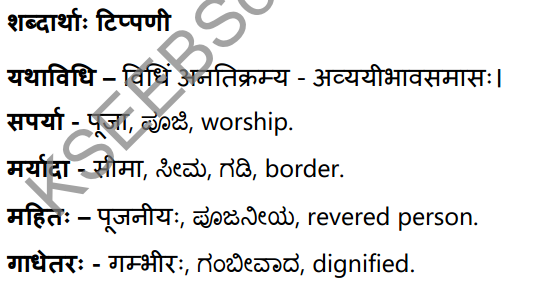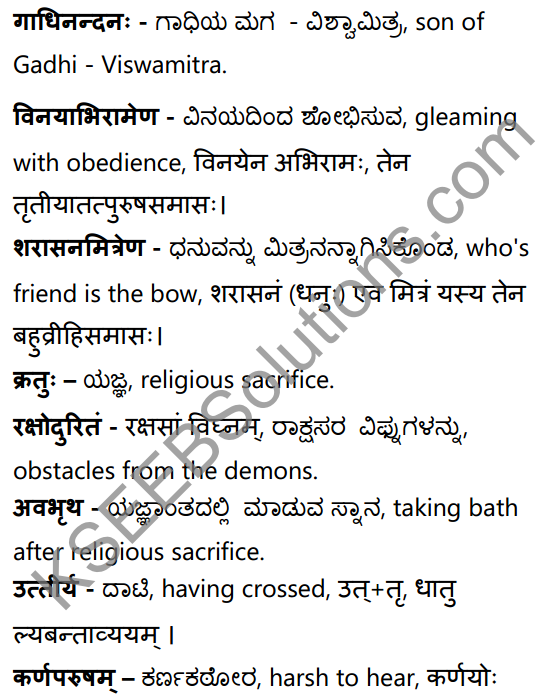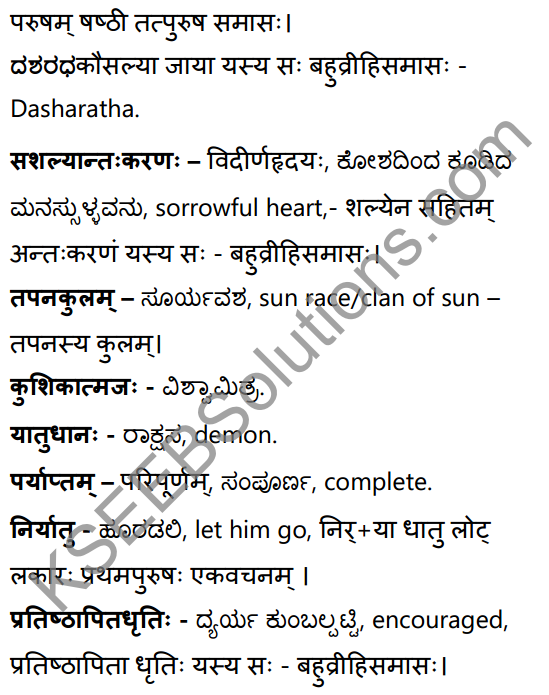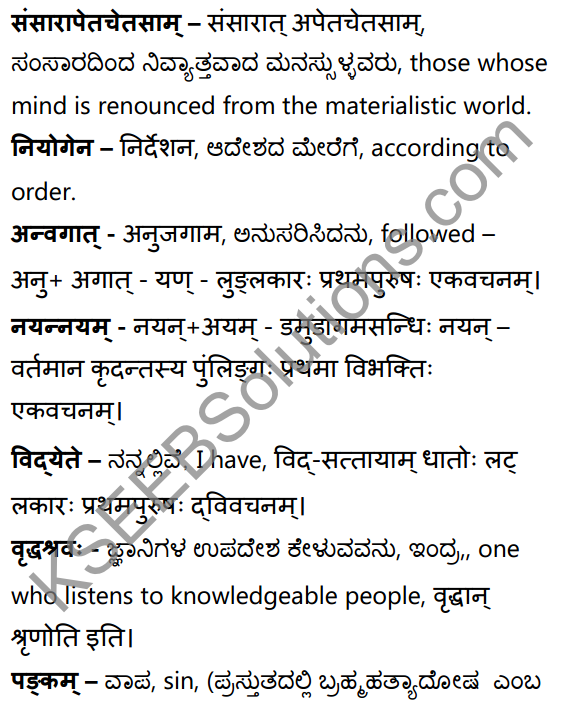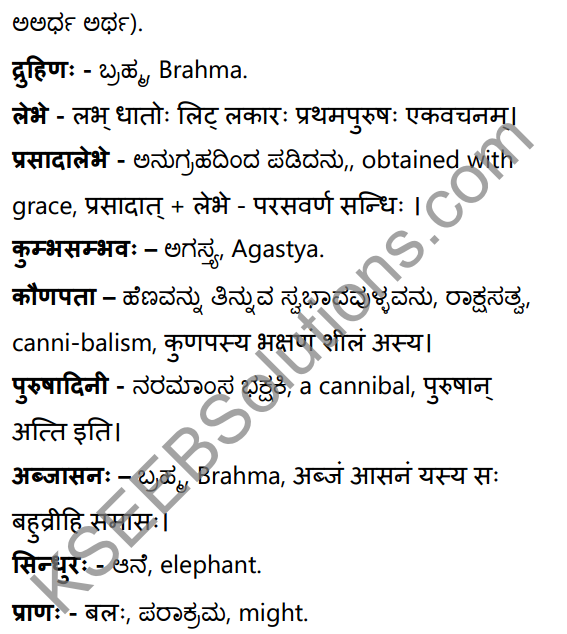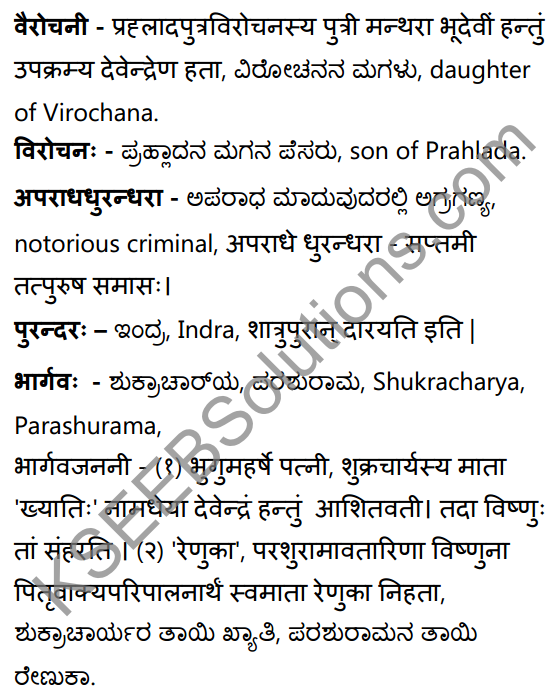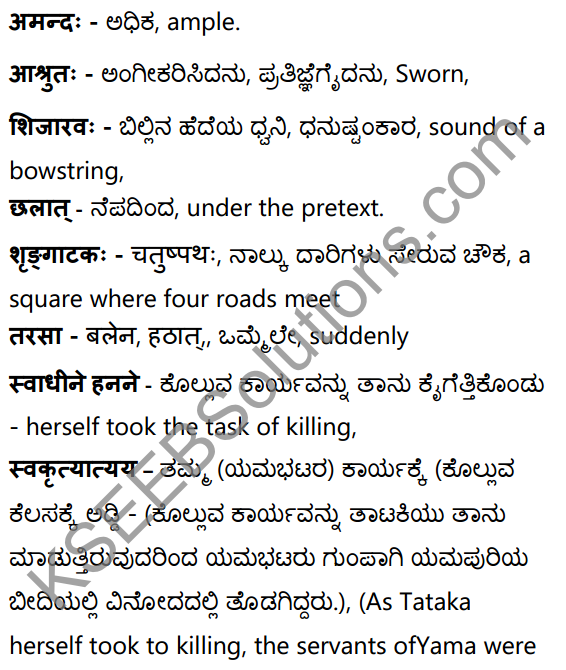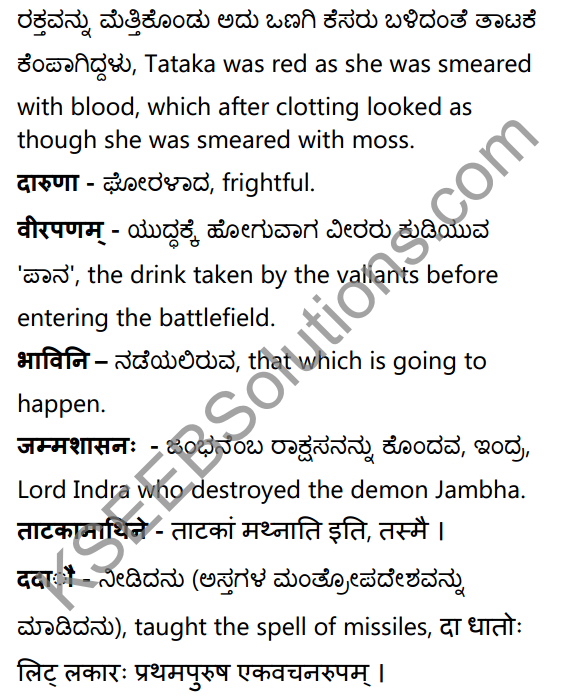Students can Download Sanskrit Shevadhi Lesson 5 महर्षिवचनपालनम् Questions and Answers, Notes Pdf, Summary, 1st PUC Sanskrit Textbook Answers, helps you to revise complete Karnataka State Board Syllabus and score more marks in your examinations.
Karnataka 1st PUC Sanskrit Textbook Answers Shevadhi Chapter 5 महर्षिवचनपालनम्
महर्षिवचनपालनम् Questions and Answers, Notes, Summary
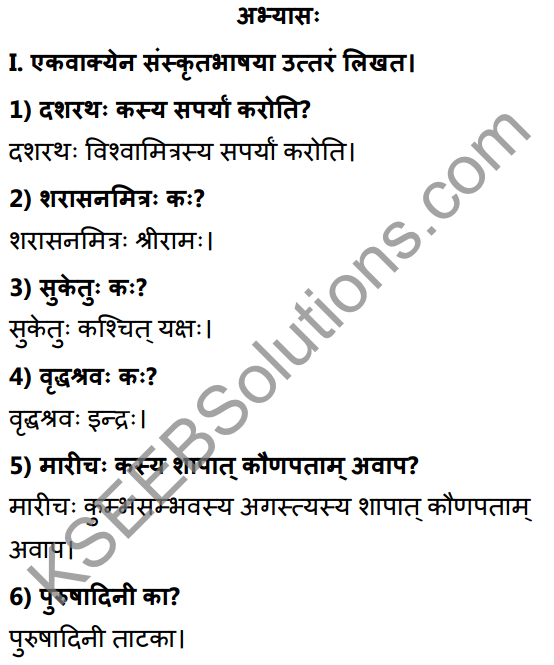
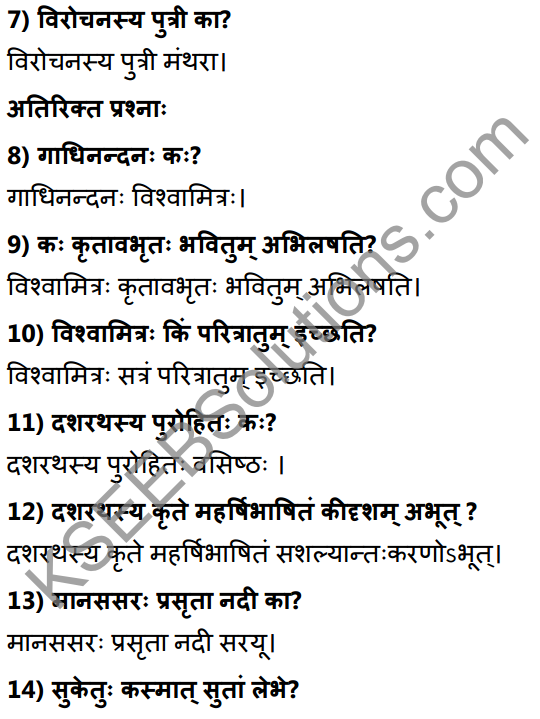
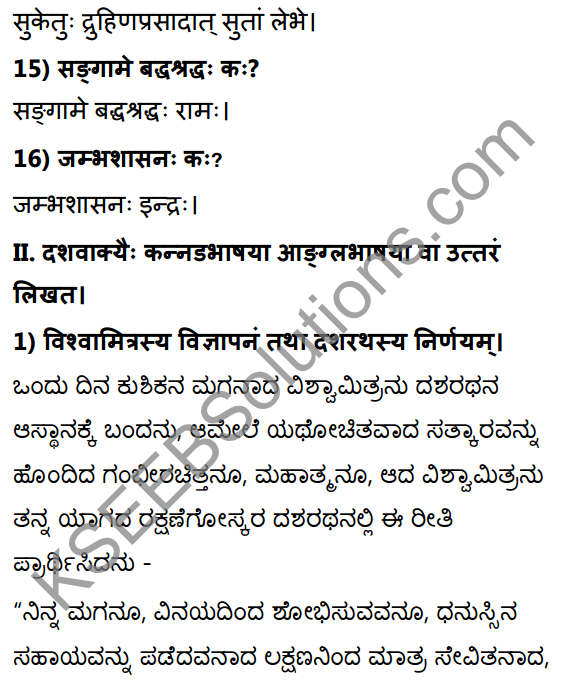
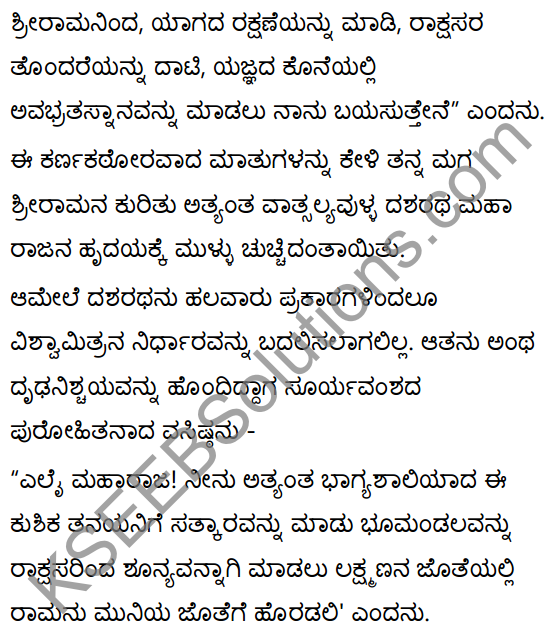

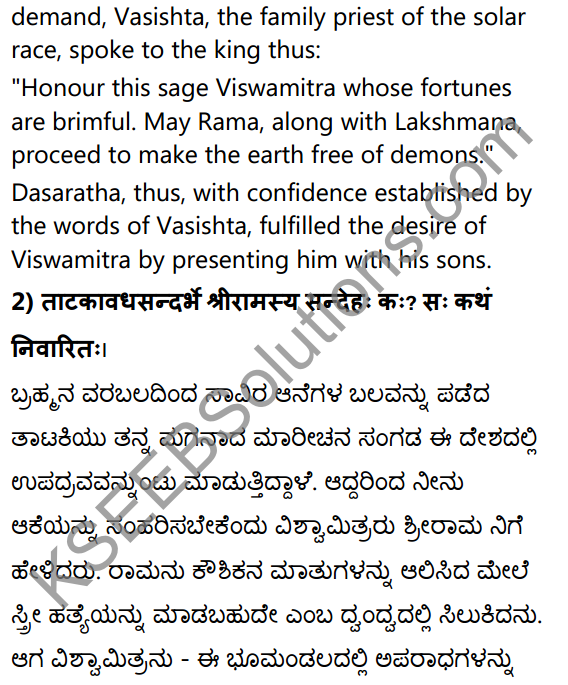
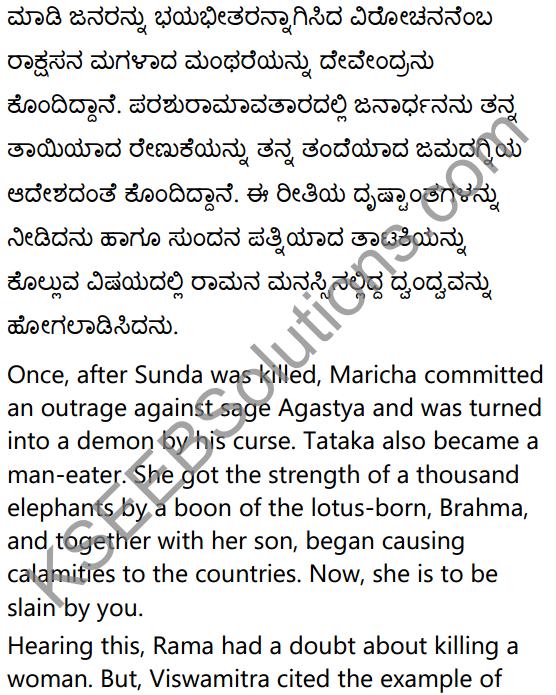
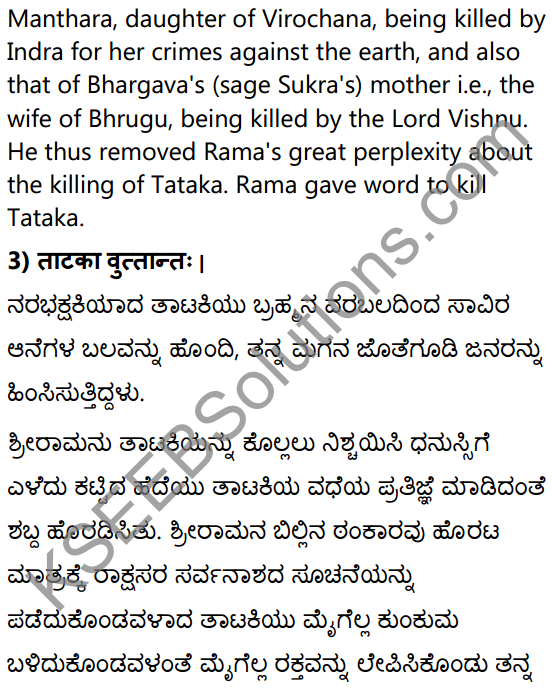
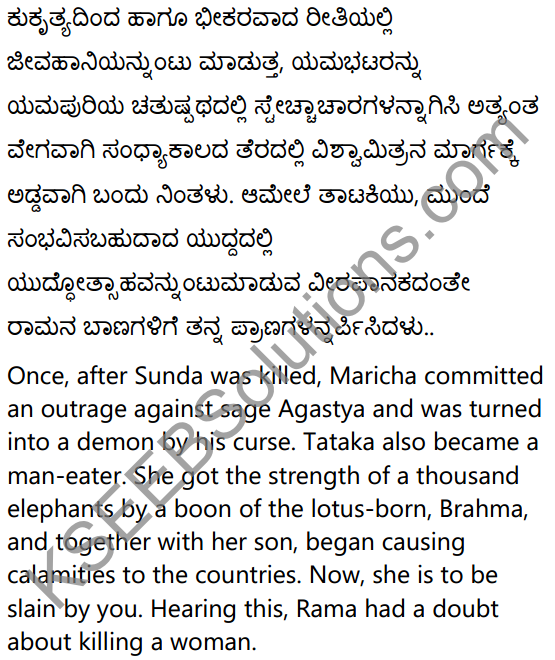
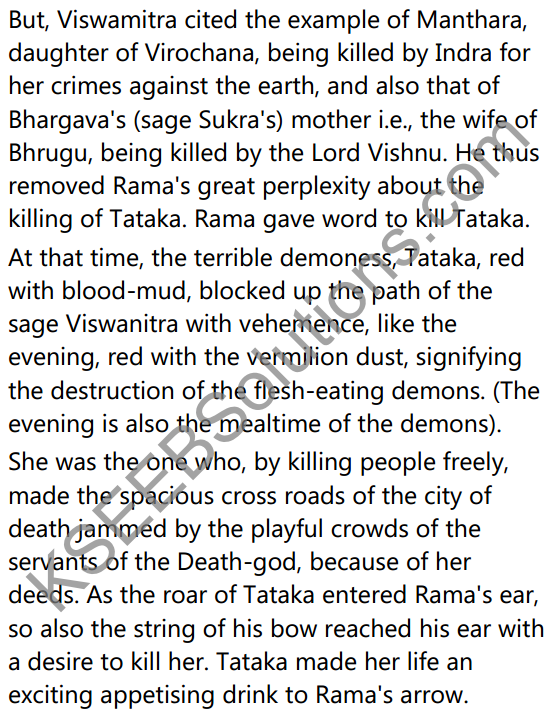
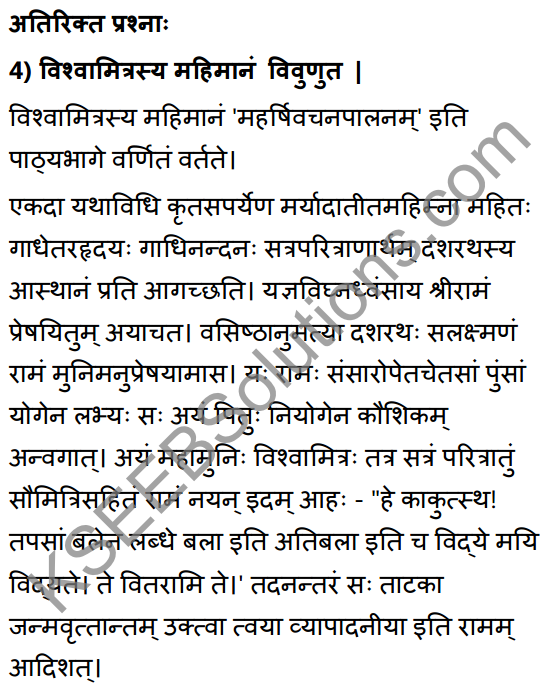

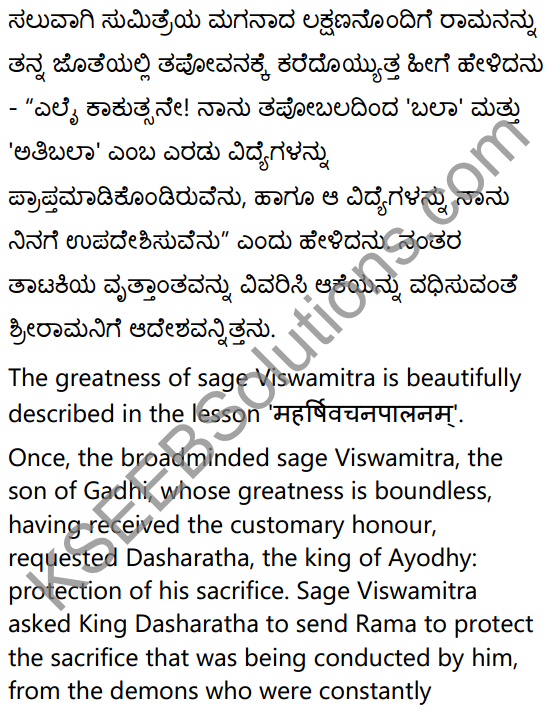
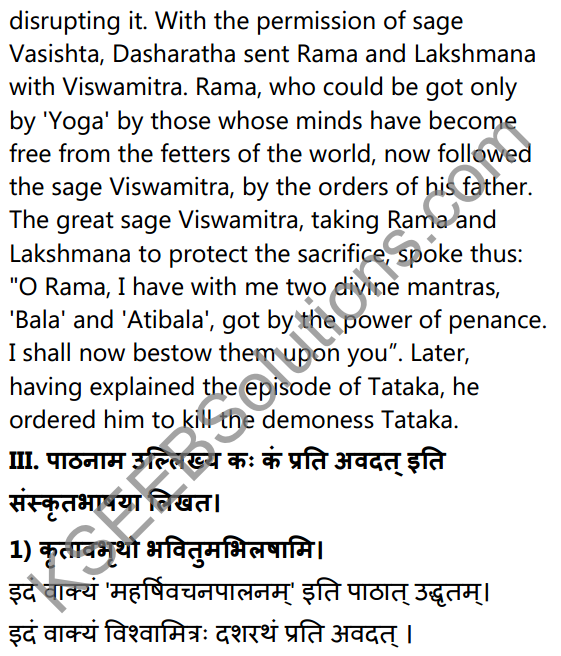
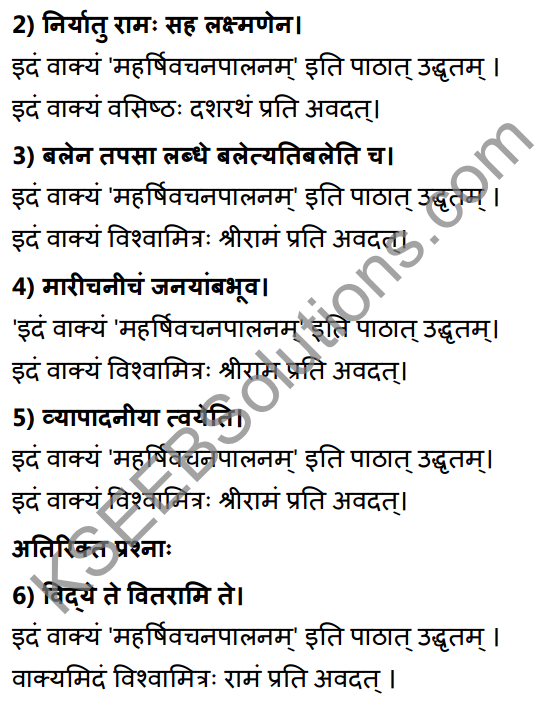
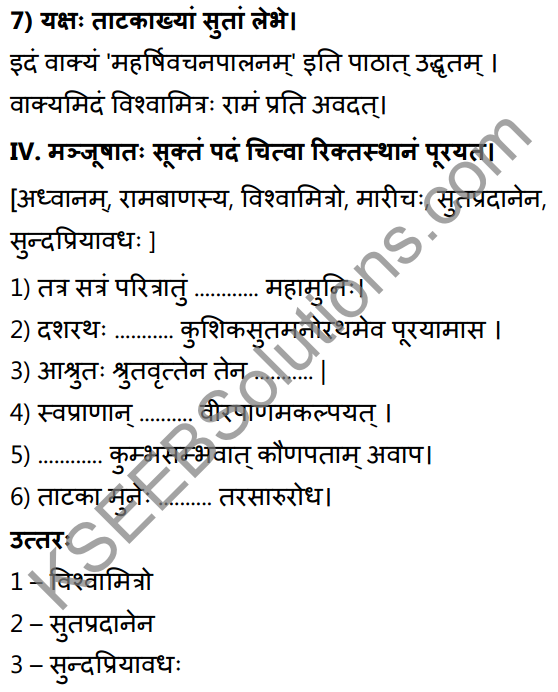
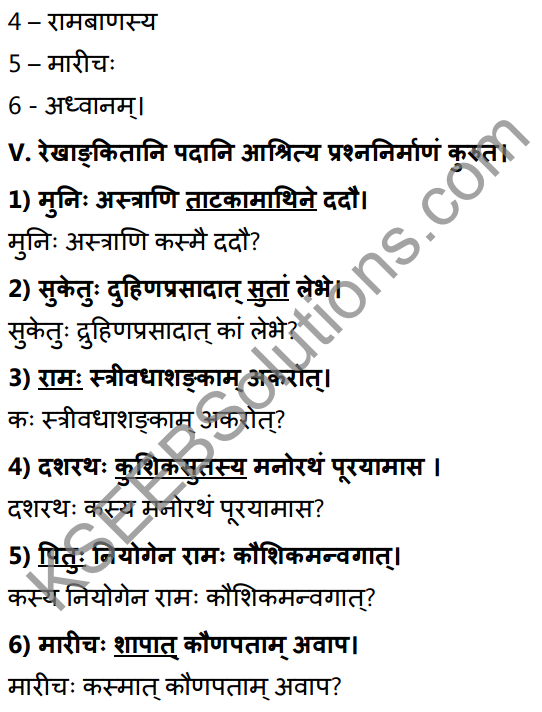


महर्षिवचनपालनम् Summary in Kannada
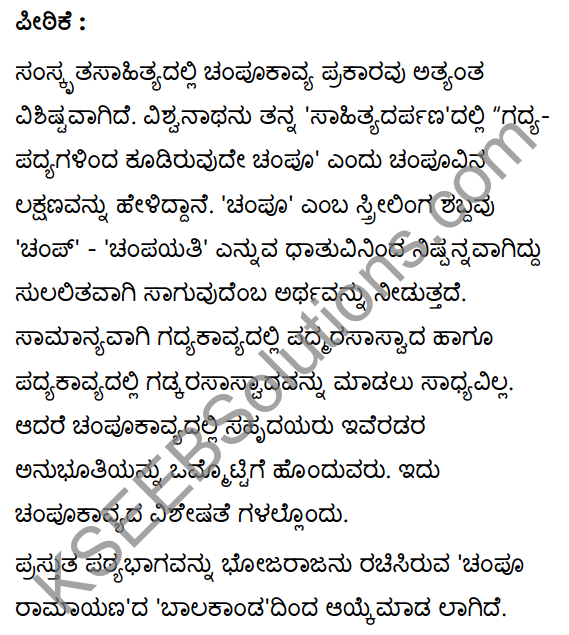
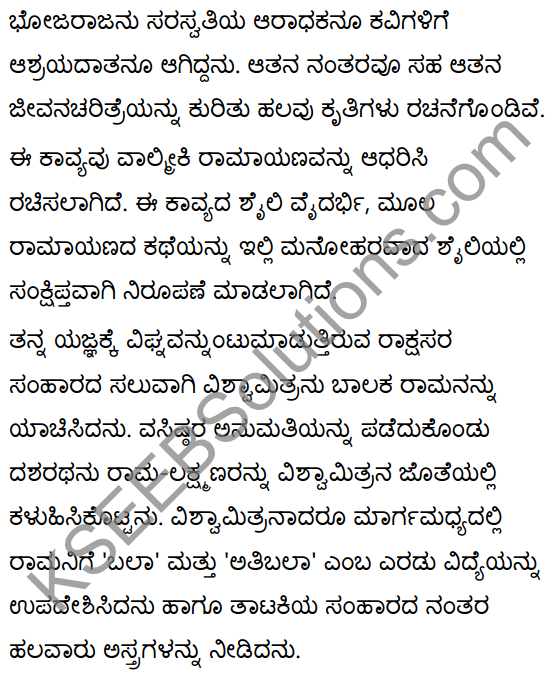
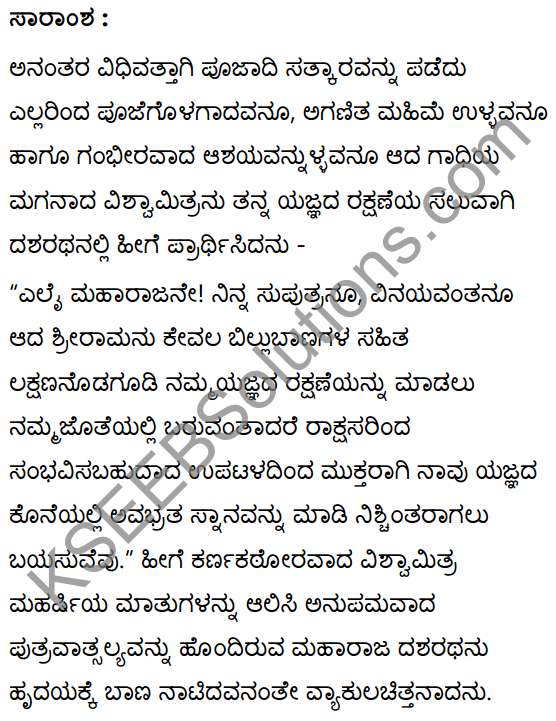
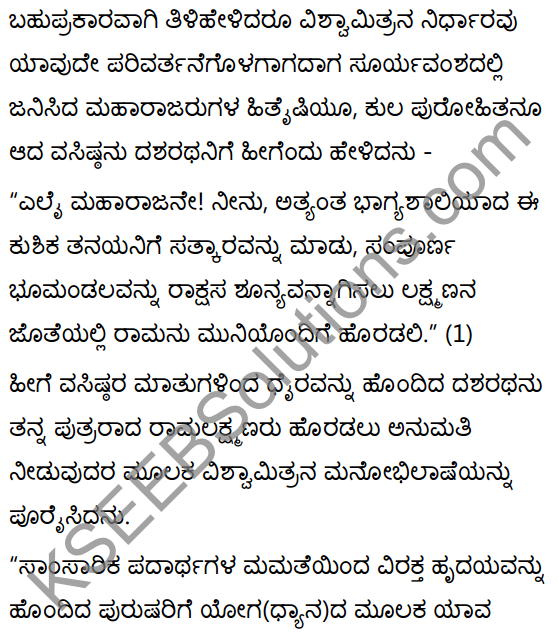
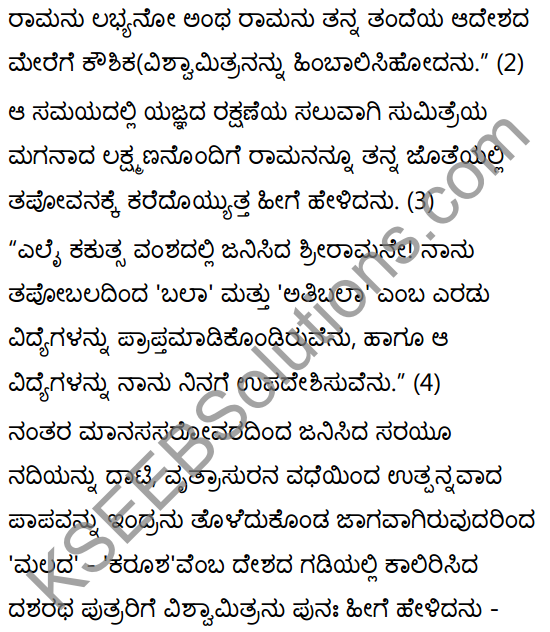
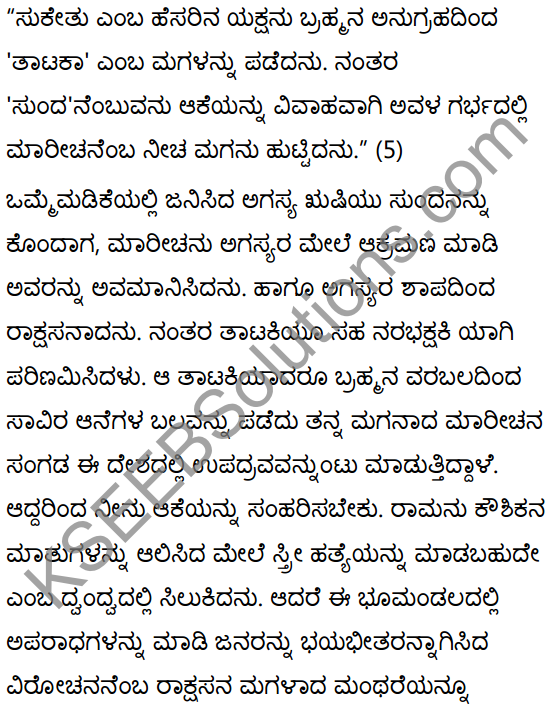
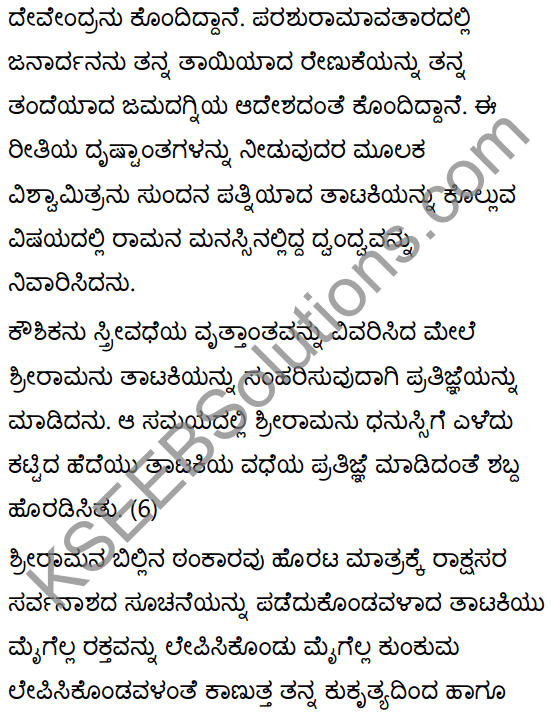
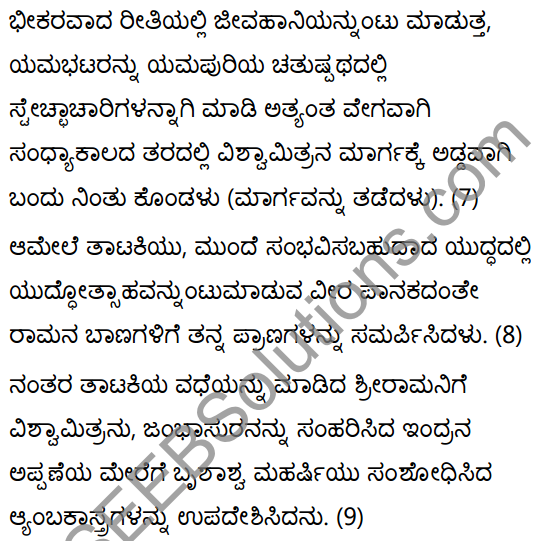
महर्षिवचनपालनम् Summary in English
Introduction
‘Champu’ is a special kind of literary form in Sanskrit literature. Vishwanatha, the famous writer and rhetorician, in his book ‘Sahitya Darpana’ says, ‘Champu is a mixture of both prose and poetry’.
The word ‘Champu’ is derived from the root ‘dy doyuld’ which means movement or change of position. A happy blend of prose and poetry will overcome any monotony that would otherwise be felt either by mere prose or by mere verses.
The present extract is taken from Balakanda of Champuramayana written by Sri Bhojaraja. King Bhoja was a great devotee of Goddess Saraswathi and he had great regard for poets. He gave shelter to many poets. Even after his death many books have been written about him.
Bhoja’s ‘Champuramayana’ is based on the Valmiki ‘Ramayana’. The style of narration is Vaidarbhi. Sage Vishwamitra asks King Dasharatha to send Rama to protect the vedic ritual that was being conducted by him, from the Raksasas that were constantly disrupting it. King Dasharatha is stunned to hear the request of Vishwamitra and declines to send Rama, thereby enraging Vishwamitra. But, with the intervention of sage Vasishta, King Dasharatha sends Rama and Lakshmana with Vishwamitra. The two princes receive initiation from the latter in the two mystic spells Bala and Atibala. After Rama kills Tataka, the ogress, a gratified Vishwamitra imparts to Rama the knowledge of various missiles.
Summary
The deep-hearted Viswamitra (son of Gadhi), whose greatness is boundless, after receiving the customary honour, requested the king for the protection of his sacrifice, thus.
“O King, I desire to finish successfully a sacrifice, which is already begun, overcoming the mischief of the demons. The protection of the sacrifice is to be done by your so disciplined, and accompanied only by his bow-friend, Lakshmana.”
The king, upon hearing these harsh words of the sage, became deeply hurt at heart because of his excessive affection for his son.
When the sage, Viswamitra, though requested in a number of ways, remained adamant in his demand, Vasishta, the family priest of the solar race, spoke to the king thus:
“Honour this sage Viswamitra whose fortunes are brimful. May Rama, along with Lakshmana, proceed to make the earth free of demons.” (1)
Dasaratha, thus, with confidence established by the words of Vasishta, fulfilled the desire of Viswamitra by presenting him with his sons.
Rama, who could be got only by ‘Yoga’ by those whose minds have become free from the fetters of the world, now followed Viswamitra, by the orders of his father. (2)
The great sage Viswamitra, taking along with him Rama together with Lakshmana to protect the sacrifice, spoke thus: (3)
“O Rama, I have with me two mantras, ‘Bala’ and ‘Atibala’ (Strength and Super-strength) got by the strength of penance. I shall now bestow them upon you.” (4)
Then, they crossed the river Sarayu, rising from the lake Manasa. Next, they crossed the borders of two countries ‘Malada’ and ‘Karusha’, which got their names by the washed off dirt (‘mala’) and excreta (‘karusha’) of Indra who got great sin by the slaughter of Vritra. Then Viswamitra said to the two sons of Dasaratha:
A Yaksha by name Suketu got a daughter named Tataka by the grace of Brahma. Sunda married her and begot by her a son named Maricha. (5)
Once, after Sunda was killed, Maricha committed an outrage against sage Agastya (Vesselborn) and was turned into a demon by his curse. Tataka also became a man-eater. She got the strength of a thousand elephants by a boon of the lotus-born, Brahma, and together with her son, began to ravage the place. Now, she is to be slain by you.
Hearing this, Rama had a doubt about killing a woman.
But, Viswamitra cited the example of Manthara, daughter of Virochana, being killed by Indra for her crimes against the earth, and also that of Bhargava’s (sage Sukra’s) mother i.e., the wife of Bhrugu, being killed by the Lord Vishnu. He thus removed Rama’s great perplexity about the killing of Tataka.
Rama gave word to kill Tataka and his bow also repeated the same in the form of the twang of the string. (6)
At that time, the terrible demoness, Tataka, red with blood-mud, blocked up the path of the sage Viswamitra with vehemence, like the evening, red with the vermilion dust, signifying the destruction of the flesh-eating demons. (The evening is also the mealtime of the demons). She was the one who, by killing people freely, made the spacious cross roads of the city of death jammed by the playful crowds of the servants of the Death-god, because of her deeds. (7)
As the roar of Tataka entered Rama’s ear, so also the string of his bow reached his ear with a desire to kill her. (8)
Tataka made her life an exciting appetising drink to Rama’s arrow which was getting ready for the feasts of the future battles.
The sage gave the mystic missiles Jrimbhaka etc., discovered by Brushashwa to the slayer of Tataka as per the direction of Indra. (9)
